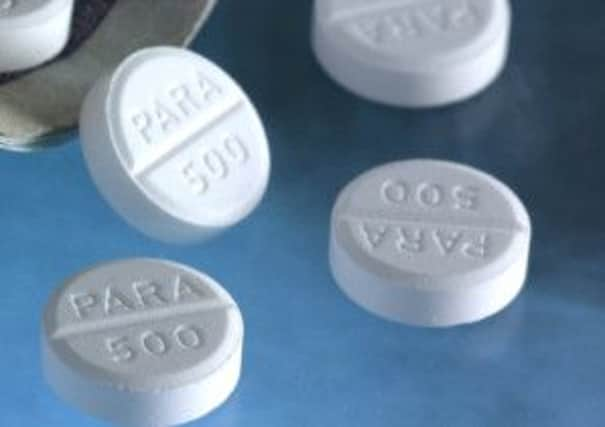Better treatment for overdose victims found


Patients with paracetamol poisoning are currently given the common antidote drug acetylcysteine by intravenous drip over a 21-hour period, with a large part of the dose given very quickly.
However, researchers at the University of Edinburgh said patients who received the same dose of acetylcysteine more gradually over a 12-hour period had less vomiting and fewer associated adverse side effects.
Advertisement
Hide AdAdvertisement
Hide AdTheir treatment was not interrupted as much as those receiving conventional treatment.
Patients given acetylcysteine can suffer a drop in blood pressure and other milder side- effects such as flushing, rashes and difficulty breathing.
Paracetamol is the most common cause of overdoses in the UK. Every year in Scotland about 5,000 people are treated in hospital for paracetamol poisoning.
Some people mistakenly overdose when they take more of the drug than they are supposed to. Taking too much of the drug can cause liver damage and in some cases can be fatal.
Professor Nick Bateman, of the university’s British Heart Foundation centre for cardiovascular science, said the new treatment would cut down the amount of time patients needed to spend in hospital and save the NHS millions of pounds.
He added: “While this new treatment is not going to save more lives it could make quite a dramatic difference to the way people are treated.
“The most important thing for the patient is that it saves them getting side effects such as a lot of vomiting and a rash which is like a severe allergy. But the pilot study patients had virtually no symptoms. In terms of cost, we could cut down the amount of time people spend in hospital. We could get them out in one day rather than two, or perhaps save half a day.
“I would estimate that this would save the NHS around £3-£6 million a year across the UK, and around £1m in Scotland.”
Advertisement
Hide AdAdvertisement
Hide AdThe pilot study treated more than 200 patients and is the largest trial of its kind for paracetamol poisoning. The research is published in medical journal The Lancet.
Prof Bateman added: “Our finding offers a major advance in treating paracetamol poisoning, both in terms of fewer unpleasant side-effects for patients and a shorter hospital stay. We need to do more work on a larger population group.”
In a separate study, researchers from the University of Dundee warned that millions of people taking drugs such as soluble aspirin, paracetamol and vitamin C have a significantly higher risk of heart attack, stroke and death due to their high salt content.